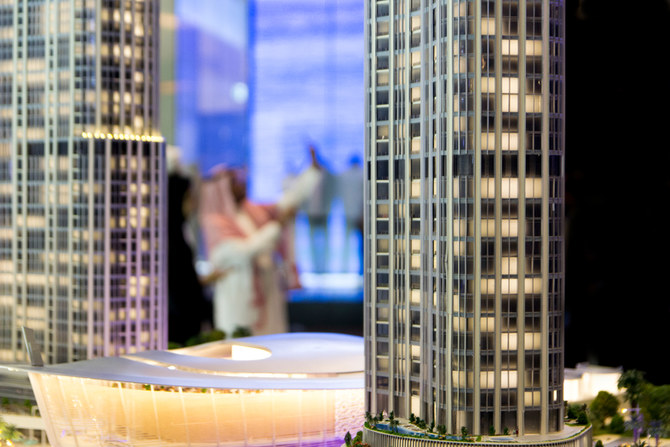Global foreign direct investment is set to fall again in 2025 primarily due to high investor uncertainty driven by ongoing trade tensions, according to a UN analysis.
In its latest report, the UN Conference on Trade and Development revealed that FDI dropped 11 percent to $1.5 trillion in 2024, marking a second year of decline.
While FDI flows were up 4 percent, this figure was inflated by volatile flows through conduit economies — nations that act as intermediaries for finances.
Ongoing trade tensions have lead to downward revisions of most indicators, including FDI prospects, capital formation, and exports of goods and services, as well as financial market volatility, and investor sentiment.
The views of UNCTAD align with a recent report released by the World Bank, which said that FDI flows into developing economies dropped to $435 billion in 2023, the lowest level since 2005, as rising trade barriers, geopolitical tensions, and growing fragmentation curbed cross-border investment.
The World Bank added that FDI into advanced economies also dropped, sinking to $336 billion in 2023, the weakest level since 1996.
Commenting on the latest report, Antonio Guterres, secretary-general of the UN, said: “At a time when the world should be deepening cooperation and expanding opportunity, we are seeing the opposite.
“Barriers are rising. Globalization is retreating. And the consequences for sustainable development are profound.”
He added: “Infrastructure investment is slowing. Industrial investment is under strain. And developing countries – those most in need – are being left behind.
“Rising trade tensions, policy uncertainty and geopolitical divisions risk making the investment environment even worse.”
The UNCTAD analysis revealed that inward FDI inflows in Saudi Arabia totaled $15.73 billion in 2024, representing a 31 percent decline from the previous year.
The Kingdom’s outflows in 2024 were $22.04 billion, marking a year-on-year rise of 27.1 percent.
Geographically, FDI value in Europe stood at $182 billion last year, representing a decline of 58 percent compared to 2023.
North America attracted FDI worth $343 billion, a 23 percent increase year on year.
Africa’s FDI flows rose by 75 percent year on year, reaching $97 billion in 2024, while FDI flows in developing Asia stood at $605 billion, marking a 3 percent decline.
In Latin America and the Caribbean, FDI flows stood at $164 billion, representing a 12 percent drop compared to the previous year.
“Among developed countries, a sharp fall in inflows in Europe contrasted sharply with rising investment in North America. FDI flows to developing countries were flat, despite sizeable increases in Africa and in South-East Asia,” said the report
Earlier this month, global credit rating agency S&P Global said FDI inflows into Gulf Cooperation Council countries are expected to slow in 2025 due to rising investor uncertainty.
The outlook reflects shifting US trade policies, lower oil prices, and a more gradual rollout of economic diversification projects in the region.
S&P Global also forecast a net negative impact on global FDI in the near term, driven by the indirect effects of US tariffs, a weaker oil price outlook, and declining global investor confidence.
According to UNCTAD, international project finance also continued its slump in 2024, registering a 26 percent decline in value compared to the previous year.
“The global economy continues to grapple with a complex set of challenges: mounting debt, persistent underperformance in GDP (gross domestic product) growth, geopolitical tensions, and structural shifts in trade and investment flows,” said Rebeca Grynspan, secretary-general of UNCTAD.
She added: “Global foreign direct investment contracted for the second consecutive year. International project finance, critical for large-scale infrastructure and development, registered the steepest decline, falling by 26 percent.”
International project finance makes up a higher share of FDI in the least developed countries, which are therefore proportionally more affected by the downturn.
According to the analysis, the number of greenfield projects announced in industrial sectors increased by 3 percent year on year. However, their value fell by 5 percent to $1.3 trillion, still the second-highest on record.
The value of cross-border mergers and acquisitions, which mostly affect FDI flows in developed countries, increased by 14 percent to $443 billion, still well below the average of the last decade.
“While there has been some weakness in overall M&A markets, the share of cross-border deals in the total is declining, with domestic deals and near-market acquisitions becoming more important in the face of growing policy risks and regulatory scrutiny,” said UNCTAD.
The report highlighted that the digital economy is the only sector to have seen growth in 2024, witnessing a 17 percent increase in project numbers and a doubling of initiative values.
“The digital economy is expanding at an annual rate of 10 to 12 percent, outpacing global GDP growth and accounting for a rising share of value creation worldwide,” said Grynspan.
She added: “Yet this growth is not equally distributed. Despite more than $500 billion in greenfield investment in the digital economy into developing countries over the past five years, this investment is heavily concentrated in a few countries.”
The UNCTAD secretary-general further said that several structurally weak and vulnerable economies remain marginalized, constrained by inadequate technical infrastructure, limited digital skills, and policy and regulatory uncertainty.
According to the report, investments aimed at achieving sustainable development goals also faced hurdles in 2024, as projects in renewable energy declined by 12 percent and those in critical minerals fell by almost 50 percent.
“What is most alarming, however, is the continued deterioration of investment flows into key sectors aligned with the Sustainable Development Goals,” said Grynspan.
She added: “This trend comes at a time when the world can least afford to fall short. Reversing this negative trend in Goals investment will demand not only more capital — both public and private — but also deeper alignment of investment flows with long-term sustainability goals.”






















